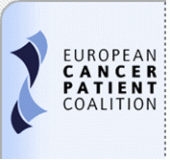Europa Uomo
I am sure that by this time you are aware of new guidelines made by United States Preventive Services Task Force (USPSTF) suggests that clinicians inform men ages 55 to 69 years about the potential benefits and harms of prostate-specific antigen (PSA)–based screening for prostate cancer. Screening offers a small potential benefit of reducing the chance of dying of prostate cancer. The USPSTF recommends individualized decision making about screening for prostate cancer after discussion with a clinician, so that each man has an opportunity to understand the potential benefits and harms of screening and to incorporate his values and preferences into his decision. USPSTF has dropped its opposition to routine screening for prostate cancer made in 2012.
As response to this new information I would like to propose that:
1. Europa UOMO would make an official statement suggesting application of these new guidelines (or at least take it in account) in European countries;
2. Discussion about these new guidelines would be added in to next General Assembly meeting.
3. Europa UOMO would recommend to European Union to make PSA screening government funded.
I hope we can make a change.
Sincerely yours,
President of Lithuanian Prostate Cancer Association
Paulius Rakštys
P. S. Below are links to websites about more information:
https://www.washingtonpost.com/news/to-your-health/wp/2017/04/11/the-federal-panel-that-opposed-prostate-cancer-screening-just-changed-its-mind/?utm_term=.805b876d77bb
https://time.com/4733273/prostate-cancer-screening-test/
https://screeningforprostatecancer.org/
Baseline PSA Test? 20 year Screening Trial of Men in their 40s Casts Some Doubt
For some time there has been a debate about when should men have their first PSA test? Some suggested that if this were done at say 40 years, any men showing any elevation in PSA levels could be monitored closely while the rest might not need any further attention for many years. There is no consensus yet on this approach, but the journal Urology December 2017 edition reports on a trial involving men in their 40s who had an median follow-up of 17.2 years. The results indicate a significant increase in the risk of prostate biopsy and a diagnosis of low risk prostate cancer with any measurable reduction in the risk of prostate cancer death in this low-risk population.
EAU Guidelines: [Full text at https://uroweb.org/guideline/prostate-cancer/?type=pocket-guidelines]
Offer early PSA testing in well-informed men at elevated risk of having PCa:
• men > 50 years of age;
• men > 45 years of age and a family history of PCa;
• African-Americans > 45 years of age;
• men with a PSA level of > 1 ng/mL at 40 years of age;
• men with a PSA level of > 2 ng/mL at 60 years of age.
To read the Urology abstract click on the hyperlink:
https://www.goldjournal.net/article/S0090-4295(17)30862-2/fulltext
Prostate Cancer and Statins
 The relationship between statin medications and prostate cancer (PCa) has received considerable attention over the past 15 years. There is conflicting evidence about statin use - but the fascination continues. Statins use is very prevalent and many readers may be taking them or have family members who do. Is there any basis for the the possibility of a cheap, safe, commonly used medicine which could slow or prevent the risk of death from prostate cancer. The Editorial in the European Urology Focus 3 asks if it is now time to have a randomised clinical trial to settle the matter.
The relationship between statin medications and prostate cancer (PCa) has received considerable attention over the past 15 years. There is conflicting evidence about statin use - but the fascination continues. Statins use is very prevalent and many readers may be taking them or have family members who do. Is there any basis for the the possibility of a cheap, safe, commonly used medicine which could slow or prevent the risk of death from prostate cancer. The Editorial in the European Urology Focus 3 asks if it is now time to have a randomised clinical trial to settle the matter.
The article is attached to this issue of Update.
Zytiga [Abiraterone Acetate] Licence Extended by the EU
 Abiraterone acetate [Zytiga] plus prednisone / prednisolone can now be used for the treatment of newly-diagnosed high-risk metastatic hormone-sensitive prostate cancer (mHSPC) in adult men in combination with androgen deprivation therapy (ADT).
Abiraterone acetate [Zytiga] plus prednisone / prednisolone can now be used for the treatment of newly-diagnosed high-risk metastatic hormone-sensitive prostate cancer (mHSPC) in adult men in combination with androgen deprivation therapy (ADT).
The European Commission has granted approval to broaden the existing marketing authorisation for Zytiga (abiraterone acetate) plus the steroid prednisone / prednisolone to include an earlier stage of metastatic prostate cancer than its current indications.
See Janssen Press Release:
https://www.europeanpharmaceuticalreview.com/news/69553/zytiga-prostate-cancer/
|
|
|
|
|
|
How Nerves Fuel Prostate Cancer Growth
Certain nerves support the growth of prostate cancer via a tumor vessel proliferating "switch," according to a study by researchers from the Albert Einstein College of Medicine. This finding could potentially lead to a new strategy for treating prostate cancer according to a report in Medical News Today (see full report at https://www.medicalnewstoday.com/articles/319789.php?sr) and see original article at the link below.

Sympathetic nerve fibers (in green) are interlaced with blood vessels (in white) in an early-stage prostate cancer tumor.
Image credit: Albert Einstein College of Medicine
"Solid tumors depend on an expanding blood supply to thrive," says Dr. Frenette one of the researchers on the study. "Here we show that nerves stimulate the new blood vessels that encourage prostate tumour growth and that we can short-circuit nerve stimulation to prevent new vessels from forming." The findings from the new research are published in the journal Science click on the hyperlink to read the scientific article:
https://science.sciencemag.org/content/358/6361/321
More on Nerves Promoting Prostate Cancer Development
Nerves release neurotransmitters to regulate most physiologic functions in the body. Recently, it has been recognized that nerves play dominant roles in the process of the formation of organs in the body (organogenesis) and tissue regeneration. In addition, growing evidence suggests that cancer development in a variety of tissues is controlled by an assortment of nerve-mediated signals, including neurotransmitters and other molecules. Two kinds of nerves (adrenergic and cholinergic) promote prostate cancer development, at least in part, by activating stromal cells. Read more: https://science.sciencemag.org/content/358/6361/321
Baldness and Prostate Cancer
As if the fear of balding wasn't bad enough, Canadian researchers say a man with a hairless head is more likely to get prostate cancer.
 Scientists from the University of Toronto have found men who start going bald early, and lose a lot of hair quickly, are at higher risk for the disease.
Scientists from the University of Toronto have found men who start going bald early, and lose a lot of hair quickly, are at higher risk for the disease.
Dr. Neil Fleshner, head of urology at Toronto’s Princess Margaret Cancer Centre and co-author of the study, says it's not baldness itself that causes cancer, but rather high levels of hormones like testosterone, which have been linked to both male pattern baldness and prostate malignancy. The study was published earlier this year in the Canadian Urological Association Journal. See link below for the original article
https://cuaj.ca/index.php/journal/article/view/3813/2921

.jpg)













